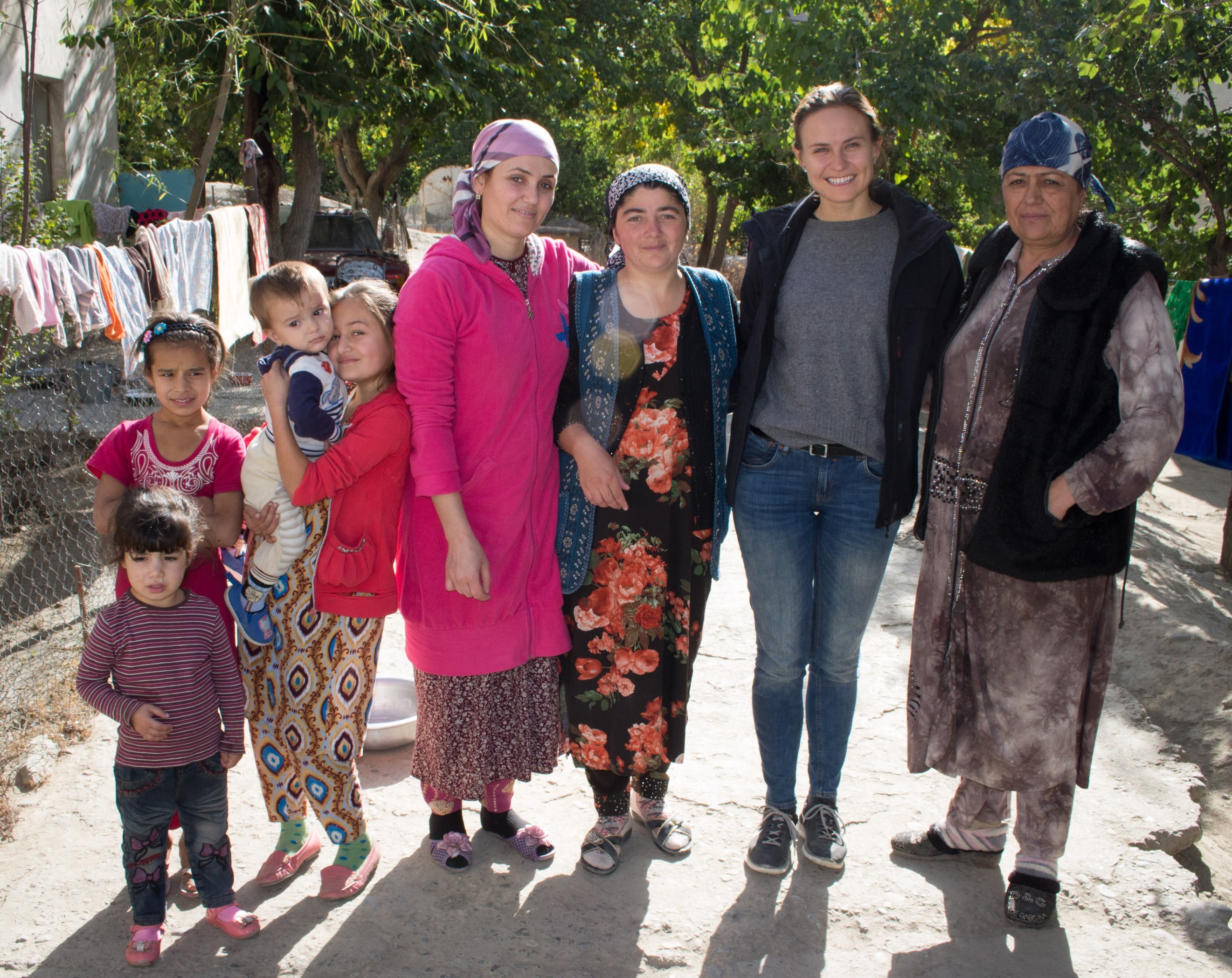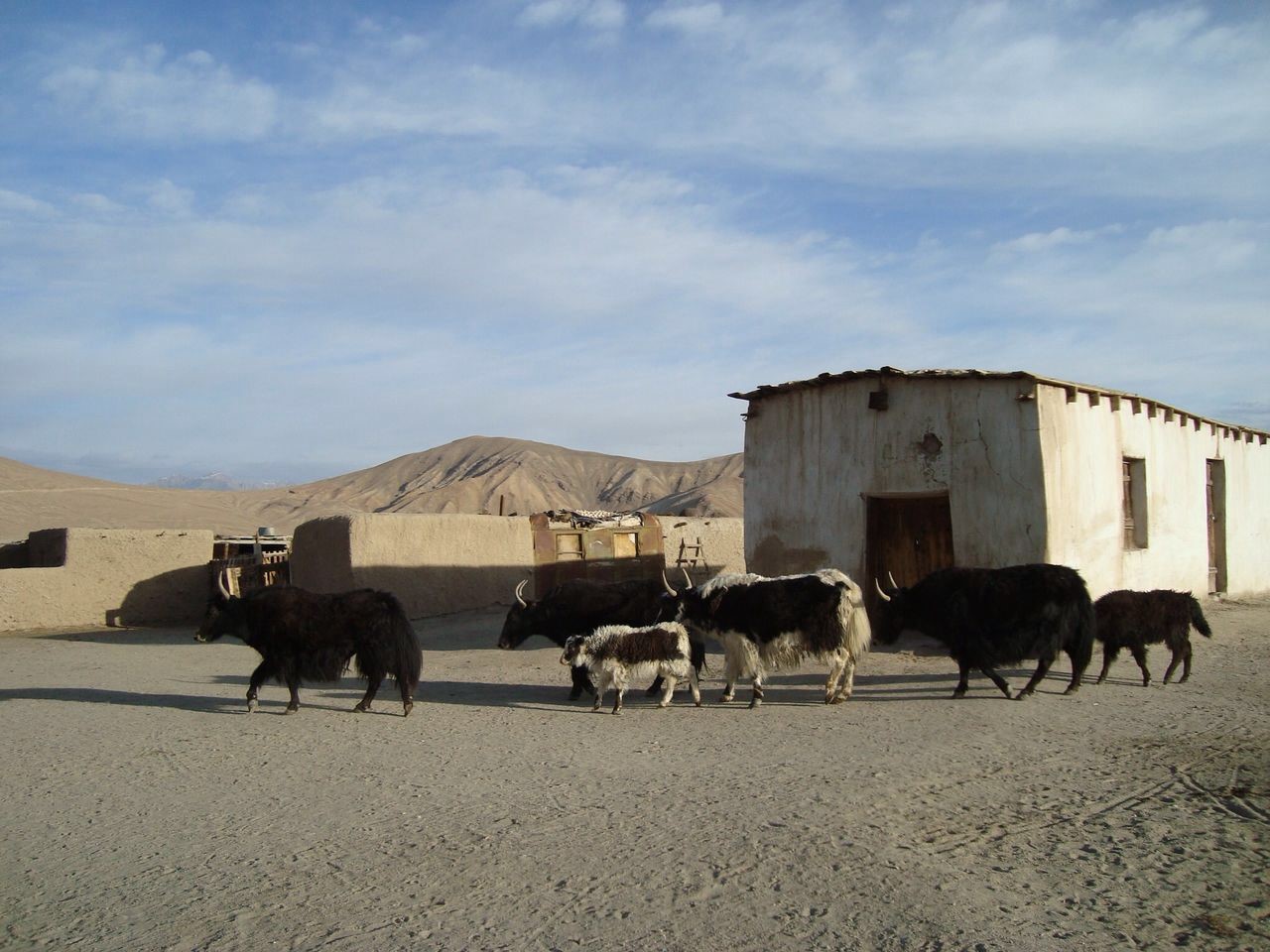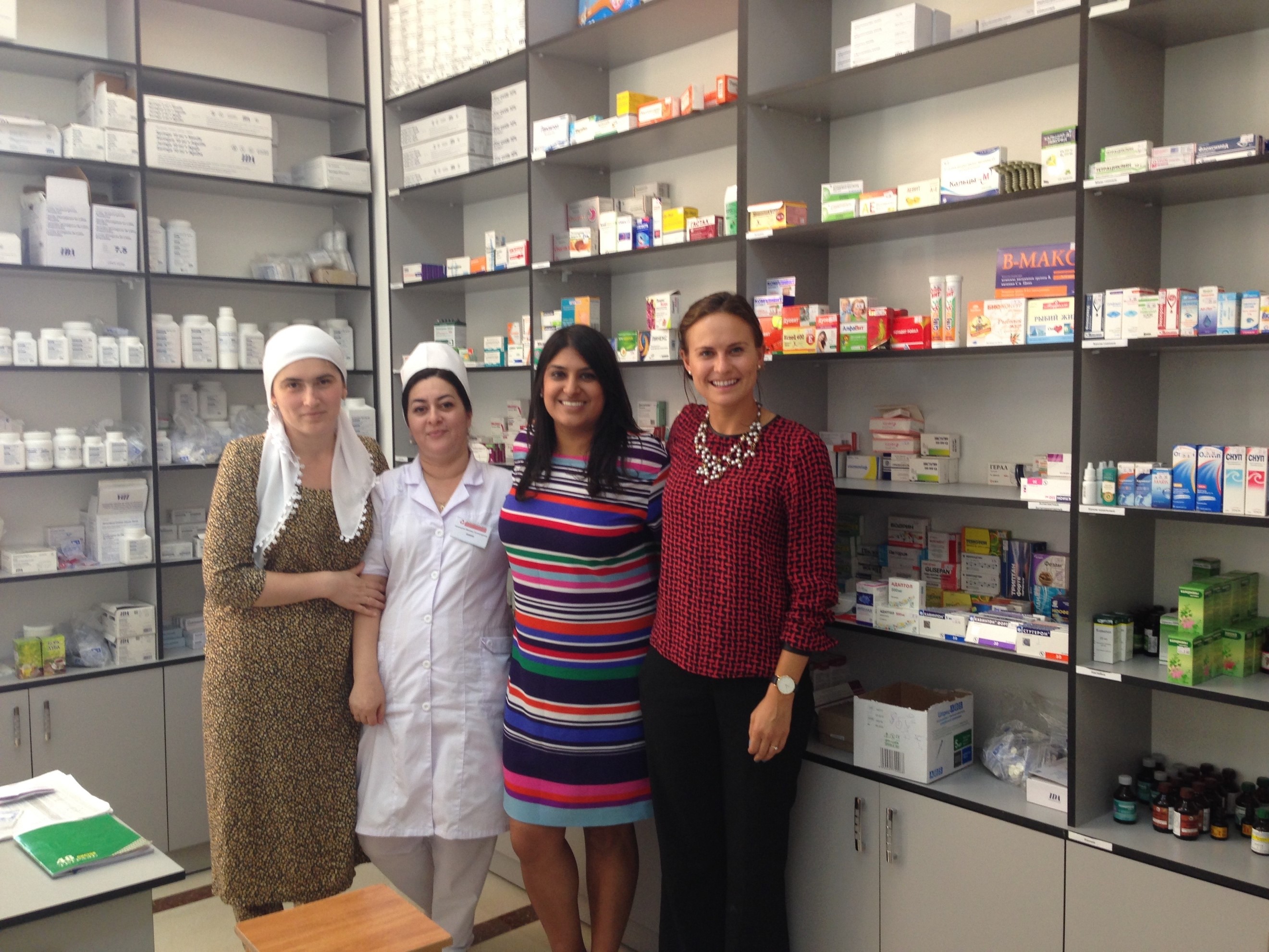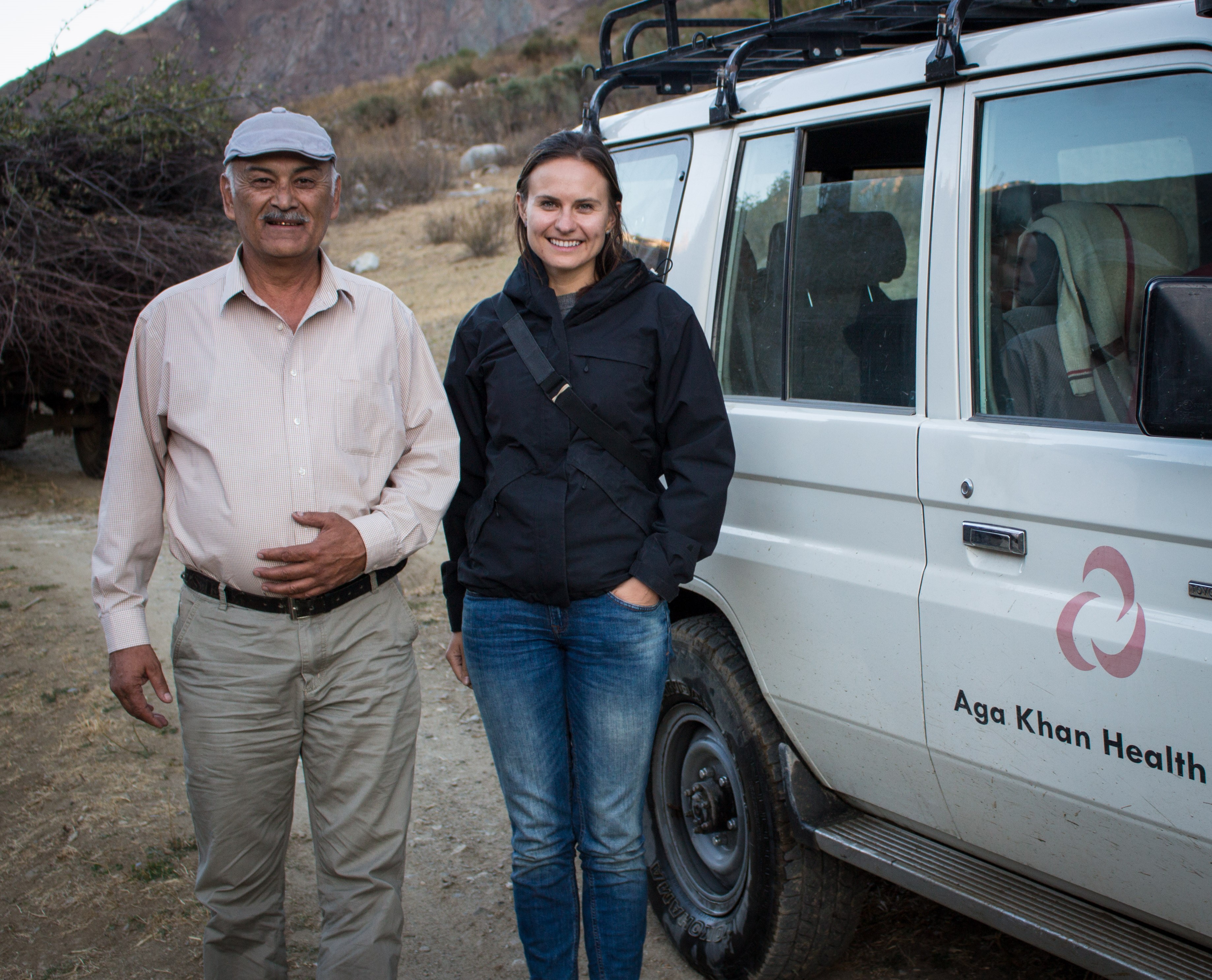
My travels in Tajikistan
Working in Tajikistan with the Aga Khan Health Services (AKHS), as part of the Aga Khan Foundation Canada’s Youth Fellowship Program has been quite the experience thus far.
By Stephanie OrtynskyI am a PhD student in the School of Public Health Vaccinology and Immunotherapeutics program, and this experience has significantly complemented my PhD studies. I have learned a lot about data collection, qualitative research methods and knowledge dissemination while working in a completely different environment and health care system to Canada’s.
Tajikistan’s health care system is largely based on the previous Soviet model. After the break-up of the Soviet Union and a substantial decrease in funding, the system became non-functional. The civil war of 1992 to1997 exasperated the situation and the country shifted from a state-run to market-based system. The government of Tajikistan relies heavily on donor funding and the capacity of local non-governmental organizations to provide basic, quality health services to much of the rural population.
I am based in Khorog, a town in the Pamir mountains of about 30,000 people near the Tajik-Afghan border. My job title is Monitoring and Evaluation (M and E) Fellow, and a team of two colleagues and I are tasked with carrying out activities that help to improve the performance and achieve results for AKHS’ projects.

A great aspect of being so close to the project implementation sites in Khorog is that we were able to do a lot of field monitoring visits. Our first visit was quite the adventure, as we drove on an extremely rough road in a Chinese mini-bus, with views of Afghanistan and plunging drop-offs into the river for most of the journey, which took nearly a whole day.
Being in Murghab, which borders Kyrgyzstan and China, felt like being on another planet. A lot of the population in Murghab is actually Kyrgyz from nomadic backgrounds and do not entirely identify with Tajik culture. One of their main sources of sustenance is the yak.
Many of the field visits we do are for monitoring the family medicine database, which is an initiative to digitize patient records across the region; collecting data for a maternal, child and new-born health (MCNH) study; doing facility assessments as part of an annual review of facility rehabilitation; and stakeholder consultations for an upcoming Central Asian health systems strengthening proposal.

I have learned a bit of Shugni, the local dialect in the Pamirs and an ancient version of Eastern Persian, while working on the MNCH project, which was funded by the French government. We did focus groups with health care providers, community health promoters (a great asset in raising awareness in small villages), and women of reproductive age in four districts. Still, I wasn’t much help when collecting data unless there was a translator!
Due to weather conditions, much of the field work needs to be done during the late spring, summer and early fall months before the snow falls as once winter comes it is very difficult to drive on the already poorly maintained roads, and there is also the risk of avalanches and earthquakes.
In terms of technology, the majority of the time the internet works, although one can always expect power outages and freezing conditions inside during the winter months!

A huge highlight of my stay here in Tajikistan has been experiencing the legendary Pamiri hospitality, as being a visitor here is considered a gift from God and treated accordingly. It certainly is something that one can easily grow accustomed to, and there is a good chance that most days you will be invited into a stranger's home for some osh (a local delicacy of fried carrots, rice and meat), naan and green tea. There is much to be thankful for here. The Pamir mountains are breathtakingly beautiful, and the journeys you can make by car or even bicycle will provide you with some of the best sights of your life.
When I return to Saskatoon in the summer, I will be completing a scope review and starting four national case studies on vaccine policy. Tajikistan will hopefully be one of these sites. As I return to my studies, which I am anticipating will require a lot of solitary desk work, the vivid memories of being here will certainly keep me company.
Learn more about Aga Khan's international youth fellowship.
The postings and views expressed in this article are entirely those of the author and do not represent the views or opinions of the Aga Khan Development Network, Aga Khan Foundation Canada, Global Affairs Canada, or Aga Khan Health Services, Tajikistan.

